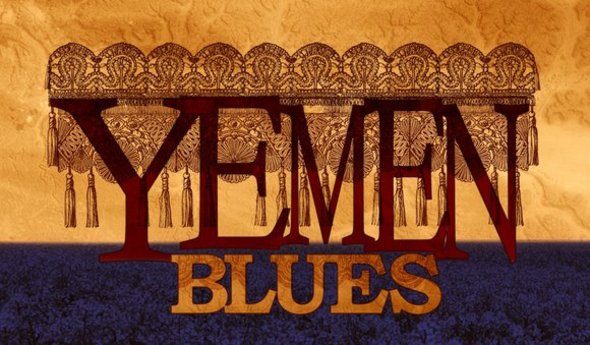''Your Language Is My Language''
"Yemenite Jews have been living in Yemen since anyone can remember," says Ravid Kahalani, singer and founder of the marvellous group Yemen Blues. Yemenite Jews (or Jews from Teman, "the far south" in Hebrew), were an integral part of Yemenite culture, he says. "Yemenite Jews are Arab Jews and Yemenite Muslims are Arab Muslims. Yemenite Muslims are no more Yemenites than the Yemenite Jews, they are all Arabs from an Arab country."
Jews have lived in Yemen for more than 3,500 years, according to some sources. After the state of Israel was founded in 1948, most Jews left the country during Operation Magic carpet, which was organised by Israel, the United States and Britain to evacuate the remaining Jews from one of their oldest habitations. Today, only a handful remain.
Old Jewish and Arab-Muslim traditions
Now Kahalani has founded a band that draws on the centuries-old traditions of Yemenite synagogue chants and traditional Arabic music. "Traditions of liturgical chants are very strict and they have been handed down from father to son for thousands of years," Kahalani says.
For Yemen Blues, Kahalani daringly added jazz, funk, soul, even West African Griot music to old Jewish and Arab Muslim traditions from the Arab peninsula. The diverging musical styles blend effortlessly to dazzling effect.

As Kahalani uses different musical styles, he also uninhibitedly mixes the languages of his lyrics. "I am using any language that sounds good with the melody, but the main languages are Yemenite Arabic as my language of origin, and Hebrew, my mother tongue." He also uses Moroccan and French Creole.
Celebrating the multitude of cultures
Unlike Israel's political scene, which is struggling with the pluralist makeup of the country's society, its music scene is celebrating the multitude of cultures that combine to form the country's social and cultural makeup. Artists such as Idan Raichel and Yasmin Levy and Gilad Atzmon explore Jewish musical cultures stretching from Spain, the Balkans, Turkey, the Middle East and North Africa, often with Israeli and Palestinian musicians working side by side.
"There are so many amazing musicians in Israel that combine all kinds of styles together. That is the real beauty of music", Kahalani explains enthusiastically. "You can see these days that we are all influenced by each other much more than we know."
Cosmopolitan Jewish-Arab background
Yemen Blues was actually born out of an informal gathering of friends who made music together. A couple of years ago, Kahalani joined forces with Omer Avital, a well known bass player and composer in Israel. Born in Israel to parents of Yemenite and Moroccan descent, Avital became increasingly interested in his own Arabic heritage and that of Sephardic Jews, especially ancient Andalusian music, which again was highly influenced by Arab musical traditions.
In Israel, Avital studied Arab musical theory, and today, all of these cultural amalgamations, spanning centuries and continents, make up the special blend that is Yemen Blues. Now, with a good handful of other musicians who share a similar cosmopolitan Jewish-Arab background, Kahalani and Avital form a "supergroup" of top musicians from New York, Israel and Uruguay.
Together, they're exploring the musical wealth of Jewish and Arab-Muslim cultures stretching from Yemeni synagogues to Berber cultures of North Africa to the West African Gnawa from Senegal, Ghana and Mali and even further to New Orleans. Their musical sophistication and solid craftsmanship lend a rare confidence to their music.
Celebrating the "brotherhood of man"
"It doesn't matter where you come from, your language is my language" Ravid Kahalani sings in the song "Um Min Al Yaman". This phrase is also, fittingly, the motto of the album and the group. Despite the fact that Yemen Blues unites so many different musical styles, the sound of the group is distinct and unmistakable. In this act of musical genius, Kahalani and his group create real "world music" – music that transcends national, ethnic and religious boundaries, celebrating the "brotherhood of man".
In this spirit, "Yemen Blues" can indeed leap boundaries of language and religion. At a show in Marseilles during the band's 2011 tour, Muslims, Christians, and all kinds of people danced. "The Muslims loved it, and there was something connecting us and reminding them of home," Kahalani muses.
"I want people to enjoy the groove and melodies and be together, with all their different religious and political opinions, and to know there is a base connecting us all. That can change everything."
Lewis Gropp
© Qantara.de 2012
Editor: Aingeal Flanagan/Qantara.de
